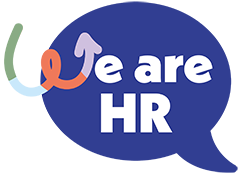As a colony the UK has depended on foreign workers for many years; after WWI and WWII there was a need to use foreign nationals to build back the UK’s infrastructure. There were challenges from both parties e.g., language barriers and the lack of acceptance of foreign nationals.
In the 21st century it is increasingly important to recognise that many sectors have skills gaps e.g., Medicine, Building and Technology. These gaps will only grow as the demands incurred by globalisation expands and the need from organisation continues with an ongoing focus Talent and Retention.
It is a general assumption amongst job seekers that UK employers fail to consider or neglect previous foreign work experience. There is literature and research available supporting the benefits of recognising prior learning and experience (Andersson & Harris, 2006). However, from cases in the UK, Canada, and Sweden, it has been identified that foreign credentials and prior work experience of foreign professionals has to a great extent not been recognised (Guo & Andersson, 2006).
Fulton and colleagues (2016) have argued that this trend has mainly emerged from United Kingdom, where foreign workers face barriers getting into work.
We-are-HR have also recognised that there are many Talented HR Professionals who have come to the UK to further their careers in the profession but are unfortunately facing a barrier to entry. We have interviewed a few of our learners in this situation to gain an insight and clarity on how this has impacted their ability to navigate a Career in the UK.
Our Key Findings were that respondents felt that foreign work experience is not recognised at all by UK employers. That there are apparent barriers where employers are requesting only UK education certificates and further discrimination has been felt during interviews where questions were very UK based even when similar scenarios have taken place outside the UK.
Based on this information, it is evident that more needs to be done to improve the recognition of foreign work experience. It is acknowledged that there could be multiple reasons behind non recognition, but it is important to recognise that UK employers and the UK economy is missing out on transferrable skills and diverse experiences that foreign internationals can bring to organisations as argued by Chen et. Al (2017) “Employees with international work experience have been associated with better quality work”.
Foreign talent and international work experience can bring many benefits to an economy and to the employers. Harvey (2013) claims in his research, “The winners will be those who recognize the importance of foreign talent at all stages of a country’s economic cycle, those who invest in this invaluable resource earlier, as well those who recognise the value of economic and non‐economic incentives”.
The greatest benefit of recruiting immigrants and foreign individuals is that it brings cultural diversity and external experiences to a corporation. The impact of diversity in the workplace is astonishingly greater than one would think or expect. A diverse workplace allows an organisation to effectively execute its plans (Kapoor, C. 2011). “Studies show that putting together a team composed of people with the same ethnic background and personality may cause conflicts and decrease productivity. As opposed to a team that is composed of people with different ethnic backgrounds and personalities which allows for a higher rate of productivity and a lower rate of conflict” (Foma, 2014).
In light of our research We-are-HR believe there is a desperate requirement for UK employers to recognise foreign talent and the transferable skills that international applicants possess.
We-are-HR believes in building diversity within the HR profession, and we continue to recognise foreign talent through supporting foreign learners who have moved into the UK and who are seeking employment. We offer personalised support, CV advice, career advice and interview preparation. Diversity and Inclusion is one of our core values and we recognise the significant transferrable skills of our foreign learners.
For further information on Diversity and Inclusion Training please get in contact. We’d love to chat!
Interview Recording
References
- Foma, E., 2014. Impact of workplace diversity. Review of Integrative Business and Economics Research, 3(1), p.382.
- KAPOOR, C. (2011, July 11). Benefits Of Diversity in the workplace. Retrieved March 5, 2014, from http://benefitof.net/benefits-of-diversity-in-the-workplace/
- Harvey, W., 2013. Victory can be yours in the global war for talent: Social factors and lifestyle help to attract top employees. Human Resource Management International Digest, 21(1), pp.37-40.
- Re-theorising the Recognition of Prior Learning / [ed] Per Andersson and Judy Harris, Leicester: NIACE , 2006, p. 183-203
- Guo, S. and Andersson, P., 2006. The politics of difference: non/recognition of the foreign credentials and prior work experience of immigrant professionals in Canada and Sweden.
- Fulton, A.E., Pullen-Sansfaçon, A., Brown, M., Éthier, S. and Graham, J.R., 2016. Migrant social workers, foreign credential recognition and securing employment in Canada: A qualitative analysis of pre-employment experiences. Canadian Social Work Review, 33(1), pp.65-86.


